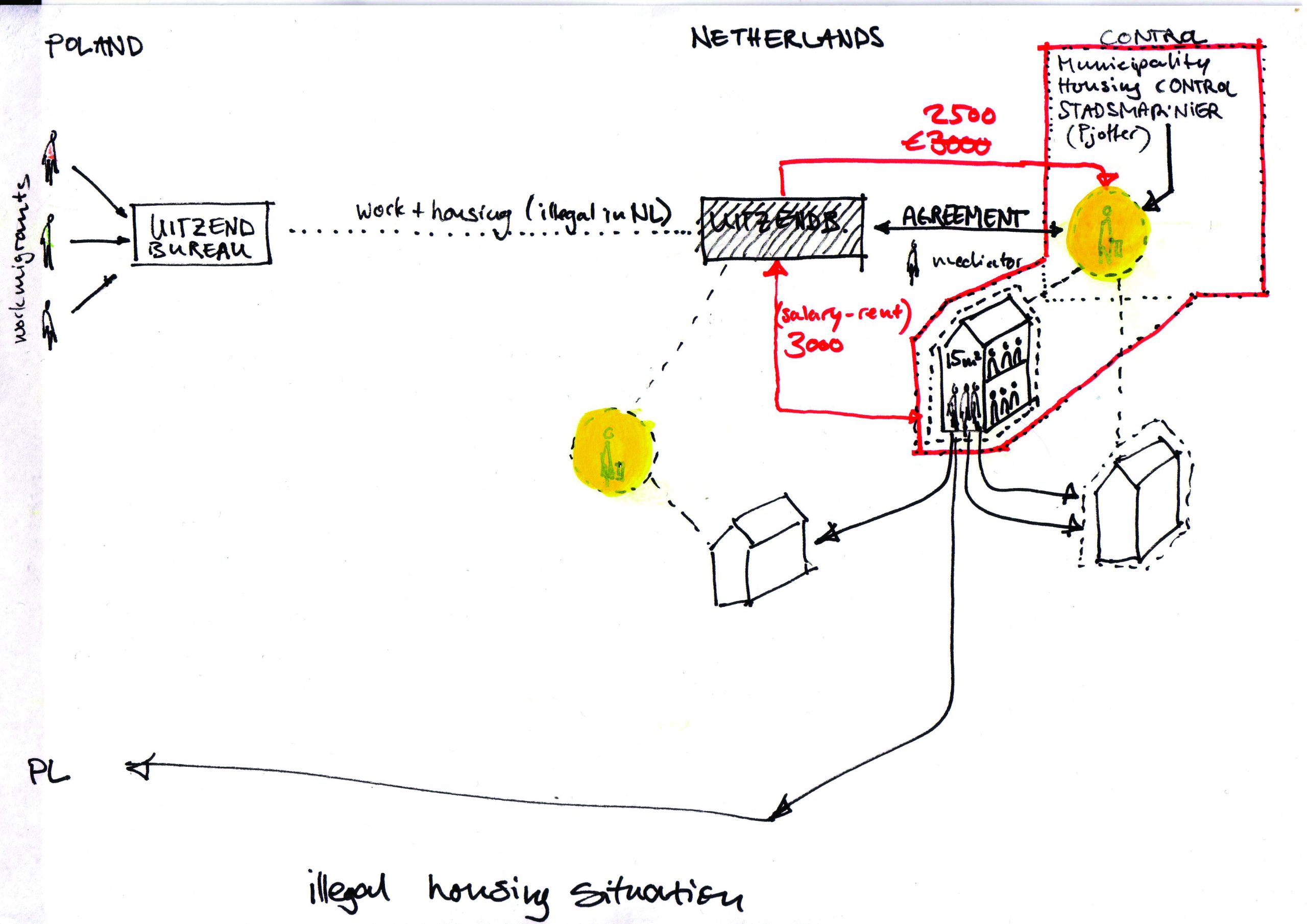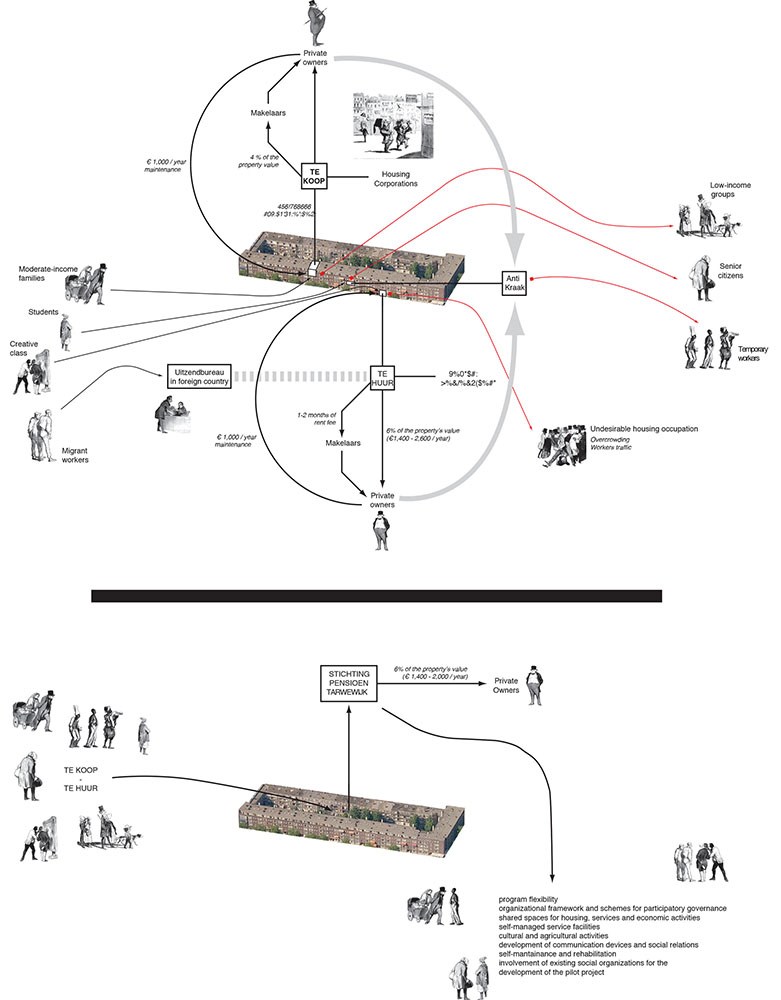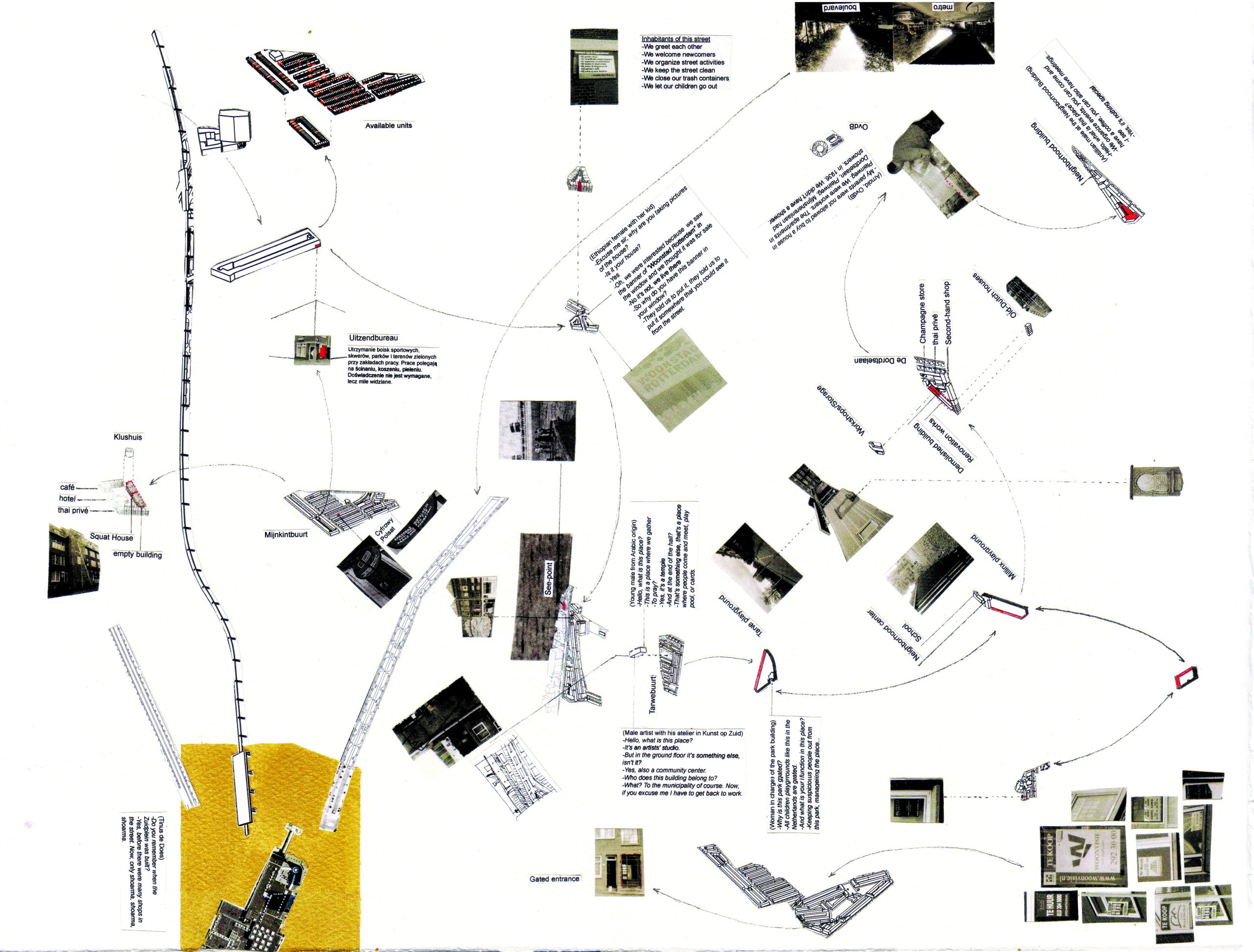Project as
Project as
CohStra (Lucia Babina, Emiliano Gandolfi, Gabriela Rendón and Miguel Robles-Durán)
Commissioned by
Self produced project
In collaboration with
URBAN UNION TARWEWIJK
Urban Union Tarwewijk is an experimental urban research program grounded in Tarwewijk, a district in the south of Rotterdam. The project is the continuation of a preliminary research developed for an exhibition at the 4th International Architecture Biennale Rotterdam. Urban Union Tarwewijk seeks to expose and disseminate local and broader agents of social and spatial change affecting low-income neighborhoods, as well as current urban policy in The Netherlands. In addition, it aims defining a common ground for progressive academic and neighbourhood-based action research, through a number of local initiatives.
The research methodology developed for this project integrates two interrelated components, the Strategic Research Unit (SRU) and the Action Research Unit (ACT). The first one based on scientific knowledge while the second one on popular knowledge. The idea of an ‘Urban Union’ was envisioned while studying the sort of neighborhood-based entity suitable to act as a research, learning and working center, while having the agency to organize, mobilize and plan for the future considering the local problems, capacities, assets and priorities. The ‘Urban Union’ was conceived as a metaphor of a traditional labour or trade union to improve the area’s political, social, economic, physical condition without displacement. This entity was comprised by a series of committees addressing a number of local affairs— space, urban and labour. Each committee would organize and lead a number of local initiatives to identify, expose and amplify popular knowledge. The knowledge produced in the ‘Urban Union’ reported to the scientific knowledge generated by the academic institutions engaged in the project and the experts of cooperative’s team involved, whereas the academic findings would feed the field work and the neighborhood initiatives.
A number of local initiatives were envisioned for the different committees, such as; Pension Tarwewijk, a local housing cooperative planning and organizing the occupation of vacant housing units for short term stay; Craft-Work, a project-base research initiative addressing the local economies and labour relationships; and Consortium for Useful Knowledge, a neighborhood center with a number of pedagogical programs addressing public policy, legal assistance, urban and tenants rights, and other issues related to housing and social justice.




